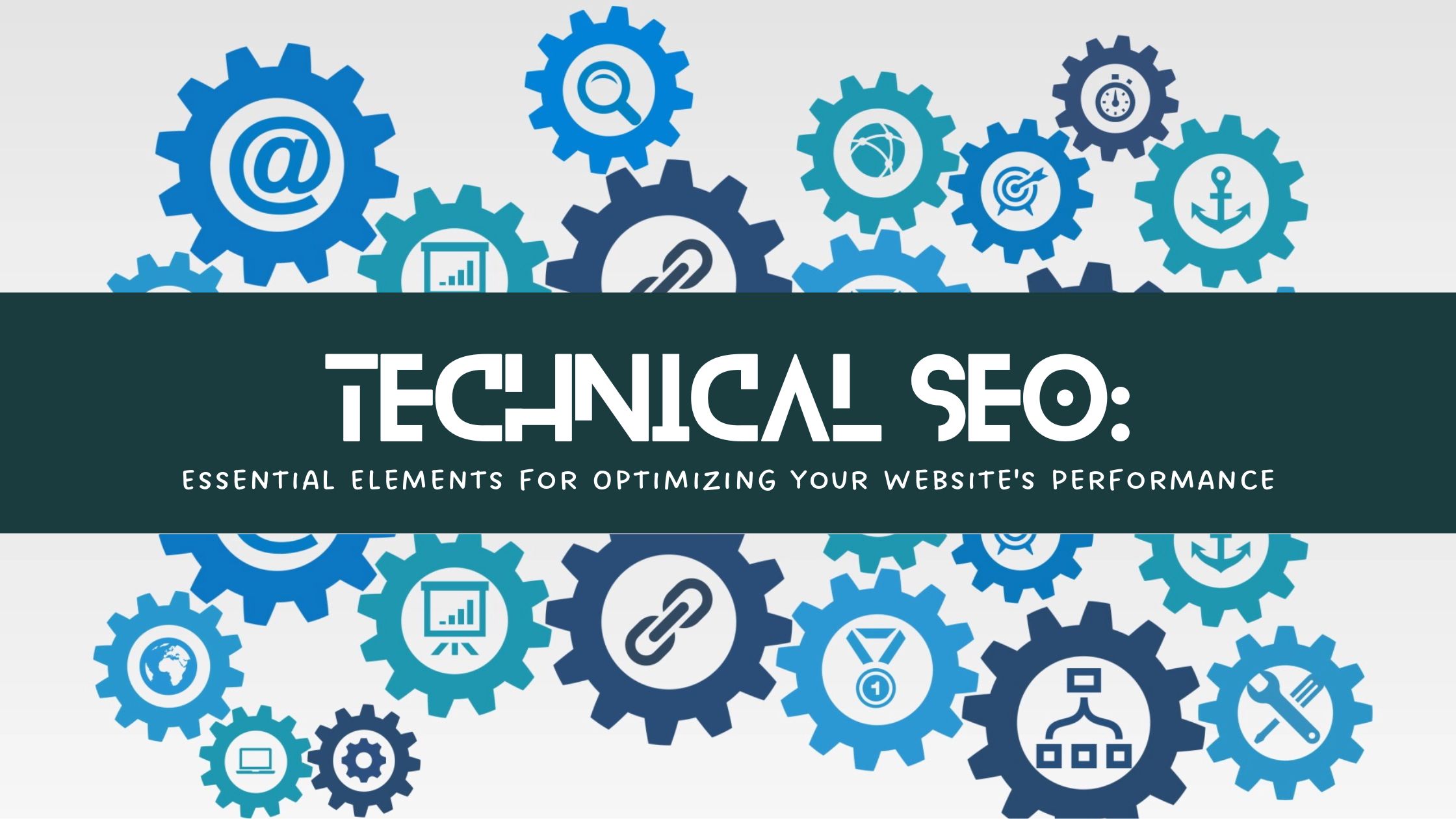In the ever-evolving digital landscape, technical SEO plays a critical role in optimizing your website’s performance and achieving higher search engine rankings. By focusing on the technical aspects of your website, you can enhance its visibility, user experience, and overall performance. In this article, we will explore the essential elements of technical SEO that are vital for optimizing your website and driving organic traffic. From website speed and mobile-friendliness to indexing and crawling, we will delve into the key elements that can significantly impact your website’s success in the digital realm.
- Website Speed and Performance: One of the fundamental elements of technical SEO is optimizing your website’s speed and performance. In today’s fast-paced digital world, users expect websites to load quickly, and search engines consider page speed as a ranking factor. Slow-loading websites lead to a poor user experience and higher bounce rates. To improve your website’s speed, compress images, minify code, leverage browser caching, and utilize content delivery networks (CDNs). By enhancing your website’s performance, you not only provide a better user experience but also increase your chances of ranking higher in search engine results.
- Mobile-Friendliness: With the rise of mobile usage, having a mobile-friendly website is essential for success in the digital landscape. Search engines prioritize mobile-friendly websites, and user experience on mobile devices directly impacts search rankings. Implement responsive design to ensure your website adapts seamlessly to different screen sizes and devices. Optimize your mobile website for speed, ease of navigation, and user-friendly touch elements. By providing a smooth mobile experience, you can attract and engage a larger audience while improving your website’s search engine visibility.
- Indexing and Crawling: Efficient indexing and crawling are crucial for search engines to discover and understand your website’s content. Help search engine bots crawl and index your site effectively by creating an XML sitemap that lists all your webpages. Submit the sitemap to search engines to ensure comprehensive coverage. Utilize a robots.txt file to guide search engine bots and control access to specific areas of your website. Optimize your internal linking structure to facilitate navigation and prioritize important pages. By improving indexing and crawling, you enable search engines to accurately interpret and rank your website’s content.
- URL Structure: A well-structured URL can significantly impact search engine visibility and user experience. Create descriptive and readable URLs that accurately represent the content of your web pages. Incorporate relevant keywords when appropriate, as they can contribute to better search rankings. Avoid using complex and dynamically generated URLs that are difficult to understand and remember. A clear and user-friendly URL structure not only helps search engines comprehend your website’s content but also makes it easier for users to navigate and share your web pages.
- Canonicalization: Canonicalization is an essential element of technical SEO that helps address duplicate content issues. When multiple versions of a webpage exist, implementing canonical tags indicates the preferred version to search engines. This ensures that search engines understand which version to include in search results, avoiding potential penalties for duplicate content. Canonicalization consolidates the ranking signals for similar content, directing them towards a single authoritative page. By properly implementing canonical tags, you can maintain the integrity of your website’s content and improve its search engine visibility.
- Website Security: Website security is paramount for both user trust and search engine rankings. Implement HTTPS encryption to ensure data transmission between your website and users is secure. Search engines consider website security as a ranking factor, and a secure website builds credibility with visitors. Regularly update and patch your website’s software, use secure hosting environments, and monitor for potential security vulnerabilities. By prioritizing website security, you protect your users’ data, establish trust, and positively impact your website’s search engine rankings.
- Structured Data Markup: Implementing structured data markup using schema.org vocabulary enhances your website’s visibility and provides search engines with valuable context about your content. By providing structured data, you enable search engines to present your content in more informative and visually appealing ways, such as rich snippets or knowledge panels. Structured data can be used to mark up various types of content, including articles, reviews, events, products, and more. By leveraging structured data markup, you can increase the chances of your website being featured prominently in search engine results, attracting more clicks and improving overall search engine visibility.
Optimizing your website’s technical elements is crucial for maximizing its performance and achieving higher search engine rankings. By prioritizing website speed, mobile-friendliness, indexing and crawling, URL structure, canonicalization, security, and structured data markup, you lay a strong foundation for your website’s success in the digital realm. Implement these essential elements of technical SEO, and you’ll see improvements in your website’s visibility, user experience, and overall performance.


